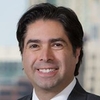Welcome to BARBRI, the trusted global leader in legal education. Continue to access the same expert-led Strafford CLE and CPE webinars you know and value. Plus, explore professional skills courses and more.
About the Course
Introduction
This CLE webinar will discuss proving or defending unjust enrichment claims, especially in situations where the plaintiff provided benefit to parties related to the defendant, but not directly to the defendant. The panel will review scenarios where unjust enrichment claims are most likely to arise, the most frequently seen categories of defendants, practical defenses, and more.
Description
Unjust enrichment is not a law school relic. Unjust enrichment claims are complex and require extensive and specific proof. They can produce gigantic verdicts. Not long ago, Harvard Law Review devoted significant space (Vol. 133, No. 6) to unjust enrichment and "its recent resurgence." The 2023 edition of The Comprehensive Guide to Economic Damages has three chapters on it, and in 2023, the U.S. Supreme Court let stand a $140 million jury award for unjust enrichment and a circuit split over the appropriate measure of damages.
Unjust enrichment may be most useful against third parties. Damages are the value of the benefit conferred/received, which can exceed actual damage to the plaintiff and allow the plaintiff to avoid disclosing sensitive information since the focus is on the defendant. Plaintiffs usually do not need to prove that the defendant was culpable. Post-closing suits against innocent shareholders or corporate affiliates can proceed based on misrepresentations of others or against co-victims of Ponzi schemes in certain situations.
Unjust enrichment damages can be huge if the benefit the plaintiff provided is kneaded into the defendant's business, such as construction materials; theft or misuse of intellectual property, trade secrets, business opportunities, and the like; business divorces; breach of fiduciary duty cases; property division in divorces; elder abuse; and more.
Listen as this experienced panel discusses the risks and rewards of properly pleading and proving or defending unjust enrichment.
Presented By

Mr. Curhan is a graduate of Columbia College and Harvard Law School. He has been an appellate lawyer for more than 33 years and as been in private practice since 1989. In that time, he has drafted appellate briefs in more than 800 criminal and civil cases in both state and federal courts and is by far the most prolific brief writer in Massachusetts history. Mr. Curhan is admitted to practice before the state and federal courts in Massachusetts and New Hampshire. In addition, he is admitted to practice in the United States Courts of Appeals for the First and Eleventh Circuits, as well as the United States Supreme Court. Mr. Curhan has been recognized as a Massachusetts Super Lawyer (“Top Rated Appellate Attorney”) every year from 2008 to 2017. He was named a 2017 Lawyer of the Year by Massachusetts Lawyer’s Weekly. Mr. Curhan is a member of the Massachusetts Association of Criminal Defense Lawyers (MACDL).

Mr. Harris has significant experience drafting and negotiating Enterprise Software related license, implementation and SaaS agreements, as well as litigating failed software implementations. Prior to entering private practice, he was senior corporate counsel in charge of intellectual property in the Legal/Contracts Department of SAP America and at SSA Global Technologies (now Infor), where he developed and managed an extensive international trademark and patent portfolio, managed intellectual property litigation, conducted intellectual property due diligence and reviewed advertising material to verify compliance with legal requirements.
-
This 90-minute webinar is eligible in most states for 1.5 CLE credits.
-
Live Online
On Demand
Date + Time
- event
Tuesday, May 7, 2024
- schedule
1:00 p.m. ET./10:00 a.m. PT
- Overview of unjust enrichment
- Elements of the claim
- Measuring damages
- Evidence and burdens of proof
- Defenses
- Strategies to maximize or minimize recovery
The panel will review these and other key issues:
- When do unjust enrichment damages offer a greater recovery for the plainitff?
- How do plaintiffs obtain proof of benefit to the defendant and what risks do defendants face in discovery?
- How is benefit measured or calculated with respect to an "enterprise"?
- Can parties seek future unjust enrichment damages?
Unlimited access to premium CLE courses:
- Annual access
- Available live and on-demand
- Best for attorneys and legal professionals
Unlimited access to premium CPE courses.:
- Annual access
- Available live and on-demand
- Best for CPAs and tax professionals
Unlimited access to premium CLE, CPE, Professional Skills and Practice-Ready courses.:
- Annual access
- Available live and on-demand
- Best for legal, accounting, and tax professionals
Unlimited access to Professional Skills and Practice-Ready courses:
- Annual access
- Available on-demand
- Best for new attorneys
Related Courses
Recommended Resources

Explore the Advantages of Consistent Legal Language
- Learning & Development
- Business & Professional Skills
- Talent Development



